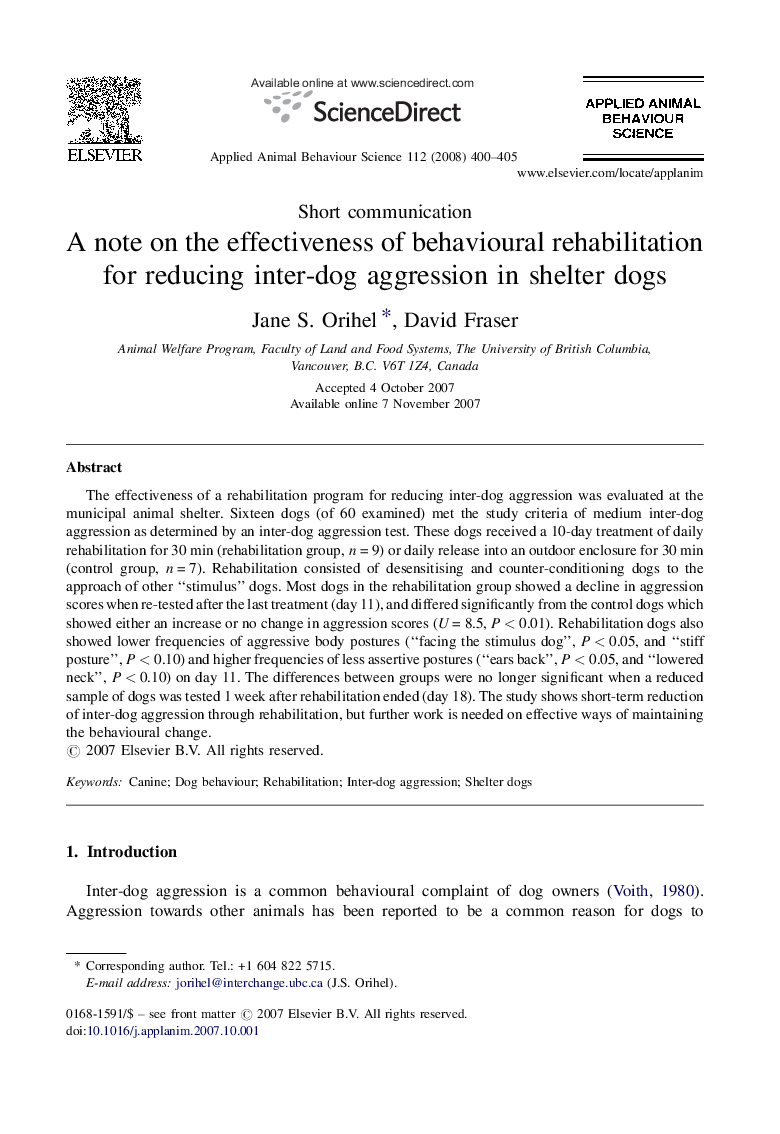| Article ID | Journal | Published Year | Pages | File Type |
|---|---|---|---|---|
| 4523982 | Applied Animal Behaviour Science | 2008 | 6 Pages |
The effectiveness of a rehabilitation program for reducing inter-dog aggression was evaluated at the municipal animal shelter. Sixteen dogs (of 60 examined) met the study criteria of medium inter-dog aggression as determined by an inter-dog aggression test. These dogs received a 10-day treatment of daily rehabilitation for 30 min (rehabilitation group, n = 9) or daily release into an outdoor enclosure for 30 min (control group, n = 7). Rehabilitation consisted of desensitising and counter-conditioning dogs to the approach of other “stimulus” dogs. Most dogs in the rehabilitation group showed a decline in aggression scores when re-tested after the last treatment (day 11), and differed significantly from the control dogs which showed either an increase or no change in aggression scores (U = 8.5, P < 0.01). Rehabilitation dogs also showed lower frequencies of aggressive body postures (“facing the stimulus dog”, P < 0.05, and “stiff posture”, P < 0.10) and higher frequencies of less assertive postures (“ears back”, P < 0.05, and “lowered neck”, P < 0.10) on day 11. The differences between groups were no longer significant when a reduced sample of dogs was tested 1 week after rehabilitation ended (day 18). The study shows short-term reduction of inter-dog aggression through rehabilitation, but further work is needed on effective ways of maintaining the behavioural change.
